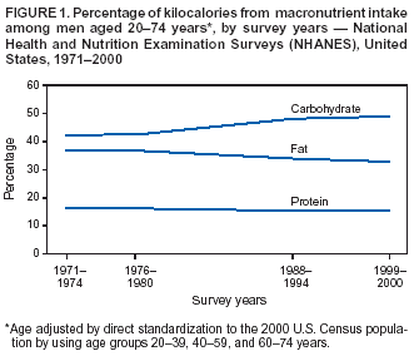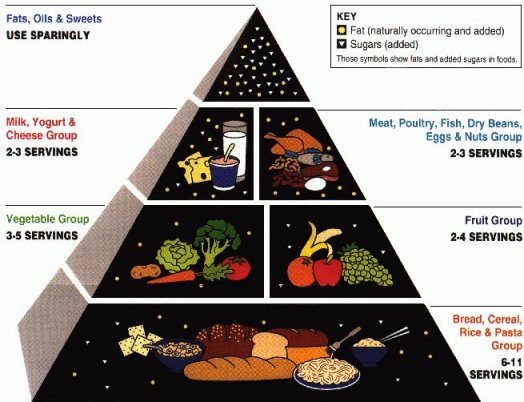It has been the general consensus because it makes sense on a superficial level. If people are gaining weight by eating too many calories, then eliminating fat (the most potent calorie-contributor) from the diet should ameliorate the problem. The recommendations soon followed: "Choose lean meats; Use low fat salad dressing; Eat fat free potato chips."
After 30 years of trying, Americans - as well as the rest of the world - have not been very successful.
Inadequate advice or poor compliance are the two obvious explanations for this failure. The latter has been incriminated thus far: the majority of Americans just aren't listening. Yet much evidence suggests they may have been listening quite well.
Clinical Trial Evidence
The appearance and sudden popularity of the Atkins diet in the 1990s had dieters running to the meat department, leaving carbs in the dust. The apparent success of this diet, mostly ascertained from anecdotal evidence, had the overweight population excited and health experts worried. A diet characterized by high amounts of meat and fat was deemed impossible to be effective and a serious health risk.
At the time, few clinical trials had been done analyzing the efficacy and safety of such a diet, which understandably led to extreme skepticism among dietitians and doctors. Recent years have seen numerous studies comparing a calorie unlimited, low carbohydrate diet to various other low-fat, low calorie diets.In other words, a battle between two notorious opponents: Eat until you are full and limit carbs Vs. Eat until you reach a calorie limit and restrict fat. Since fat has 9 calories per gram and protein or carbs have 4 calories per gram, a high fat diets seem destined to fail.
Yet to the surprise of many, when compared to other diets, the calorie unrestricted, lowest carbohydrate diet group generally — but not always — loses more weight. With few exceptions, their HDL increases and their blood triglyceride levels decrease without having any significant effect on LDL (bad cholesterol). When subjects keep their carbohydrate intake lower than 50-75 grams per day, they seem to be most successful.
Often times the various groups fare the same, both losing approximately the same amount of weight. But NEVER, in dietary clinical trial history, has the low-fat, low-calorie diet group lost more weight (more on this idea).
The very idea that a diet characterized by high-fat foods and unlimited calories can do as well, or better, than a low-fat, calorie-restricted diet poses a challenge to the current weight-loss recommendations. However, conceding to this evidence, and altering the recommendations would mean the advice from the last 30 years may have been premature.
Yet it seems that slowly, the anti-carb message is seeping in.
Here is a recent public service announcement from the New York City Health Department:
Researchers at Harvard Seem To Agree:
"Fat is not the problem. If Americans could eliminate sugary beverages, potatoes, white bread, pasta, white rice and sugary snacks, we would wipe out almost all the problems we have with weight and diabetes and other metabolic diseases."
-Dr. Walter Willett, chairman of the department of nutrition at the Harvard School of Public Health
"The country's big low-fat message backfired. The overemphasis on reducing fat caused the consumption of carbohydrates and sugar in our diets to soar. That shift may be linked to the biggest health problems in America today."
-Dr. Frank Hu, professor of nutrition and epidemiology at the Harvard School of Public Health.
Compliance to the high-carbohydrate recommendations
According to the center for disease control, since 1975 Americans have eaten less fat and more carbohydrates:
Perhaps it is possible that the blame does not lie entirely on the individual, due to the fact that this change in eating behavior is EXACTLY what we were asked to do:



 RSS Feed
RSS Feed
